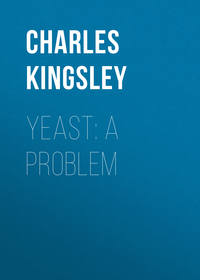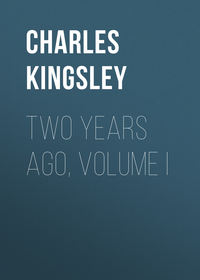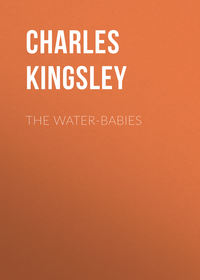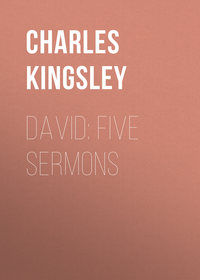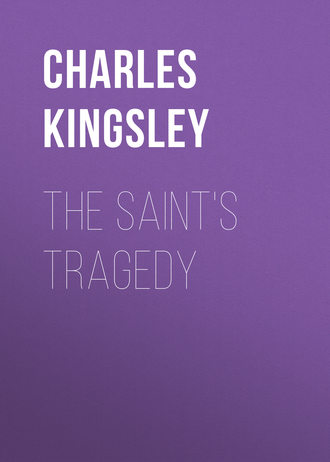
The Saint's Tragedy
[Two women enter.]
1st Woman. What! snoring still? ’Tis nearly time to wake herTo do her penance.2d Woman. Wait a while, for love:Indeed, I am almost ashamed to punishA bag of skin and bones.1st Woman. ’Tis for her good:She has had her share of pleasure in this lifeWith her gay husband; she must have her pain.We bear it as a thing of course; we knowWhat mortifications are, although I say itThat should not.2d Woman. Why, since my old tyrant died,Fasting I’ve sought the Lord, like any Anna,And never tasted fish, nor flesh, nor fowl,And little stronger than water.1st Woman. Plague on this watching!What work, to make a saint of a fine lady!See now, if she had been some labourer’s daughter,She might have saved herself, for aught he cared;But now—2d Woman. Hush! here the master comes:I hear him.—[Conrad enters.]
Con. My peace, most holy, wise, and watchful wardens!She sleeps? Well, what complaints have you to bringSince last we met? How? blowing up the fire?Cold is the true saint’s element—he thrivesLike Alpine gentians, where the frost is keenest—For there Heaven’s nearest—and the ether purest—[Aside] And he most bitter.
2d Woman. Ah! sweet master,We are not yet as perfect as yourself.Con. But how has she behaved?1st Woman. Just like herself—Now ruffling up like any tourney queen;Now weeping in dark corners; then next minuteBegging for penance on her knees.2d Woman. One trick’s cured;That lust of giving; Isentrude and Guta,The hussies, came here begging but yestreen,Vowed they were starving.Con. Did she give to them?2d Woman. She told them that she dared not.Con. Good. For them,I will take measures that they shall not want:But see you tell her not: she must be perfect.1st Woman. Indeed, there’s not much chance of that a while.There’s others, might be saints, if they were young,And handsome, and had titles to their names,If they were helped toward heaven, now—Con. Silence, horse-skull!Thank God, that you are allowed to use a fingerTowards building up His chosen tabernacle.2d Woman. I consider that she blasphemes the means of grace.Con. Eh? that’s a point, indeed.2d Woman. Why, yesterday,Within the church, before a mighty crowd,She mocked at all the lovely images,And said ‘the money had been better spentOn food and clothes, instead of paint and gilding:They were but pictures, whose realityWe ought to bear within us.’Con. Awful doctrine!1st Woman. Look at her carelessness, again—the distaffOr woolcomb in her hands, even on her bed.Then, when the work is done, she lets those nunsCheat her of half the price.2d Woman. The Aldenburgers.Con. Well, well, what more misdoings?[aside] Pah! I am sick on’t.[Aloud] Go sit, and pray by her until she wakes.[The women retire. Conrad sits down by the fire.]
I am dwindling to a peddling chamber-chaplain,Who hunts for crabs and ballads in maids’ sleeves,I, who have shuffled kingdoms. Oh! ’tis easyTo beget great deeds; but in the rearing of them—The threading in cold blood each mean detail,And furzebrake of half-pertinent circumstance—There lies the self-denial.Women [in a low voice]. Master! sir! look here!Eliz. [rising]. Have mercy, mercy, Lord!Con. What is it, my daughter? No—she answers not—Her eyeballs through their sealed lids are bursting,And yet she sleeps: her body does but mimicThe absent soul’s enfranchised wanderingsIn the spirit-world.Eliz. Oh! she was but a worldling!And think, good Lord, if that this world is hell,What wonder if poor souls whose lot is fixed here,Meshed down by custom, wealth, rank, pleasure, ignorance,Do hellish things in it? Have mercy, Lord;Even for my sake, and all my woes, have mercy!Con. There! she is laid again—Some bedlam dream.So—here I sit; am I a guardian angelWatching by God’s elect? or nightly tiger,Who waits upon a dainty point of honourTo clutch his prey, till it shall wake and move?We’ll waive that question: there’s eternityTo answer that in.How like a marble-carven nun she liesWho prays with folded palms upon her tomb,Until the resurrection! Fair and holy!O happy Lewis! Had I been a knight—A man at all—What’s this? I must be brutal,Or I shall love her: and yet that’s no safeguard;I have marked it oft: ay—with that devilish triumphWhich eyes its victim’s writhings, still will mingleA sympathetic thrill of lust—say, pity.Eliz. [awaking]. I am heard! She is saved!Where am I? What! have I overslept myself?Oh, do not beat me! I will tell you all—I have had awful dreams of the other world.1st Woman. Ay! ay! a fine excuse for lazy women,Who cry nightmare with lying on their backs.Eliz. I will be heard! I am a prophetess!God hears me, why not ye?Con. Quench not the Spirit:If He have spoken, daughter, we must listen.Eliz. Methought from out the red and heaving earthMy mother rose, whose broad and queenly limbsA fiery arrow did impale, and roundPursuing tongues oozed up of nether fire,And fastened on her: like a winter-blastAmong the steeples, then she shrieked aloud,‘Pray for me, daughter; save me from this torment,For thou canst save!’ And then she told a tale;It was not true—my mother was not such—O God! The pander to a brother’s sin!1st Woman. There now? The truth is out! I told you, sister,About that mother—Con. Silence, hags! what then?Eliz. She stretched her arms, and sank. Was it a sinTo love that sinful mother? There I lay—And in the spirit far away I prayed;What words I spoke, I know not, nor how long;Until a small still voice sighed, ‘Child, thou art heard:’Then on the pitchy dark a small bright cloudShone out, and swelled, and neared, and grew to form,Till from it blazed my pardoned mother’s faceWith nameless glory! Nearer still she pressed,And bent her lips to mine—a mighty spasmRan crackling through my limbs, and thousand bellsRang in my dizzy ears—And so I woke.Con. ’Twas but a dream.Eliz. ’Twas more! ’twas more! I’ve tests:From youth I have lived in two alternate worlds,And night is live like day. This was no goblin!’Twas a true vision, and my mother’s soulIs freed by my poor prayers from penal files,And waits for me in bliss.Con. Well—be it so then.Thou seest herein what prize obedience merits.Now to press forwards: I require your presenceWithin the square, at noon, to witness thereThe fiery doom—most just and righteous doom—Of two convicted and malignant heretics,Who at the stake shall expiate their crime,And pacify God’s wrath against this land.Eliz. No! no! I will not go!Con. What’s here? Thou wilt not?I’ll drive thee there with blows.Eliz. Then I will bear them,Even as I bore the last, with thankful thoughtsUpon those stripes my Lord endured for me.Oh, spare them, sir! poor blindfold sons of men!No saint but daily errs,—and must they burn,Ah, God! for an opinion?Con. Fool! opinions?Who cares for their opinions? ’Tis rebellionAgainst the system which upholds the worldFor which they die: so, lest the infection spread,We must cut off the members, whose diseaseWe’d pardon, could they keep it to themselves.[Elizabeth weeps.]
Well, I’ll not urge it,—Thou hast other work—But for thy petulant words do thou this penance:I do forbid thee here, to give henceforthFood, coin, or clothes, to any living soul.Thy thriftless waste doth scandalise the elect,And maim thine usefulness: thou dost eludeMy wise restrictions still: ’Tis great, to livePoor, among riches; when thy wealth is spent,Want is not merit, but necessity.Eliz. Oh, let me give!That only pleasure have I left on earth!Con. And for that very cause thou must forego it,And so be perfect. She who lives in pleasureIs dead, while yet she lives; grace brings no meritWhen ’tis the express of our own self-will.To shrink from what we practise; do God’s workIn spite of loathings; that’s the path of saints.I have said. [Exit with the women.]Eliz. Well! I am freezing fast—I have grown of lateToo weak to nurse my sick; and now this outlet,This one last thawing spring of fellow-feeling,Is choked with ice—Come, Lord, and set me free.Think me not hasty! measure not mine age,O Lord, by these my four-and-twenty winters.I have lived three lives—three lives.For fourteen years I was an idiot girl:Then I was born again; and for five years,I lived! I lived! and then I died once more;—One day when many knights came marching by,And stole away—we’ll talk no more of that.And so these four years since, I have been dead,And all my life is hid with Christ in God.Nunc igitur dimittas, Domine, servam tuam.SCENE IV
The same. Elizabeth lying on straw in a corner. A crowd of women round her. Conrad entering.
Con. As I expected—A sermon-mongering herd about her death-bed,Stifling her with fusty sighs, as flocks of rooksDespatch, with pious pecks, a wounded brother.Cant, howl, and whimper! Not an old fool in the townWho thinks herself religious, but must seeThe last of the show and mob the deer to death.[Advancing] Hail! holy ones! How fares your charge to-day?
Abbess. After the blessed sacrament received,As surfeited with those celestial viands,And with the blood of life intoxicate,She lay entranced: and only stirred at timesTo eructate sweet edifying doctrineCulled from your darling sermons.Woman. Heavenly graceImbues her so throughout, that even when prickedShe feels no pain.Con. A miracle, no doubt.Heaven’s work is ripe, and like some more I know,Having begun in the spirit, in the fleshShe’s now made perfect: she hath had warnings, too,Of her decease; and prophesied to me,Three weeks ago, when I lay like to die,That I should see her in her coffin yet.Abbess. ’Tis said, she heard in dreams her Saviour call herTo mansions built for her from everlasting.Con. Ay, so she said.Abbess. But tell me, in her confessionWas there no holy shame—no self-abhorrenceFor the vile pleasures of her carnal wedlock?Con. She said no word thereon: as for her shrift,No Chrisom child could show a chart of thoughtsMore spotless than were hers.Nun. Strange, she said nought;I had hoped she had grown more pure.Con. When, next, I asked her,How she would be interred; ‘In the vilest weeds,’Quoth she, ‘my poor hut holds; I will not pamperWhen dead, that flesh, which living I despised.And for my wealth, see it to the last doitBestowed upon the poor of Christ.’2d Woman. O grace!3d Woman. O soul to this world poor, but rich toward God!Eliz. [awaking]. Hark! how they cry for bread!Poor souls! be patient!I have spent all—I’ll sell myself for a slave—feed them with the price.Come, Guta! Nurse! We must be up and doing!Alas! they are gone, and begging!Go! go! They’ll beat me, if I give you aught:I’ll pray for you, and so you’ll go to Heaven.I am a saint—God grants me all I ask.But I must love no creature. Why, Christ loved—Mary he loved, and Martha, and their brother—Three friends! and I have none!When Lazarus lay dead, He groaned in spirit,And wept—like any widow—Jesus wept!I’ll weep, weep, weep! pray for that ‘gift of tears.’They took my friends away, but not my eyes,Oh, husband, babes, friends, nurse! To die alone!Crack, frozen brain! Melt, icicle within!Women. Alas! sweet saint! By bitter pangs she winsHer crown of endless glory!Con. But she wins it!Stop that vile sobbing! she’s unmanned enoughWithout your maudlin sympathy.Eliz. What? weeping?Daughters of Jerusalem, weep not for me—Weep for yourselves.Women. We do, alas! we do!What are we without you? [A pause.]Woman. Oh, listen, listen!What sweet sounds from her fast-closed lips are welling,As from the caverned shaft, deep miners’ songs?Eliz. [in a low voice]. Through the stifling roomFloats strange perfume;Through the crumbling thatchThe angels watch,Over the rotting roof-tree.They warble, and flutter, and hover, and glide,Wafting old sounds to my dreary bedside,Snatches of songs which I used to knowWhen I slept by my nurse, and the swallowsCalled me at day-dawn from under the eaves.Hark to them! Hark to them now—Fluting like woodlarks, tender and low—Cool rustling leaves—tinkling waters—Sheepbells over the lea—In their silver plumes Eden-gales whisper—In their hands Eden-lilies—not for me—not for me—No crown for the poor fond bride!The song told me so,Long, long ago,How the maid chose the white lily;But the bride she choseThe red red rose,And by its thorn died she.Well—in my Father’s house are many mansions—I have trodden the waste howling ocean-foam,Till I stand upon Canaan’s shore,Where Crusaders from Zion’s towers call me home,To the saints who are gone before.Con. Still on Crusaders? [Aside.]Abbess. What was that sweet song, which just now, my Princess,You murmured to yourself?Eliz. Did you not hearA little bird between me and the wall,That sang and sang?Abbess. We heard him not, fair Saint.Eliz. I heard him, and his merry carol revelledThrough all my brain, and woke my parched throatTo join his song: then angel melodiesBurst through the dull dark, and the mad air quiveredUnutterable music. Nay, you heard him.Abbess. Nought save yourself.Eliz. Slow hours! Was that the cock-crow?Woman. St. Peter’s bird did call.Eliz. Then I must up—To matins, and to work—No, my work’s over.And what is it, what?One drop of oil on the salt seething ocean!Thank God, that one was born at this same hour,Who did our work for us: we’ll talk of Him:We shall go mad with thinking of ourselves—We’ll talk of Him, and of that new-made star,Which, as he stooped into the Virgin’s side,From off His finger, like a signet-gem,He dropped in the empyrean for a sign.But the first tear He shed at this His birth-hour,When He crept weeping forth to see our woe,Fled up to Heaven in mist, and hid for everOur sins, our works, and that same new-made star.Woman. Poor soul! she wanders!Con. Wanders, fool? her madnessIs worth a million of your paters, mumbledAt every station between—Eliz. Oh! thank GodOur eyes are dim! What should we do, if he,The sneering fiend, who laughs at all our toil,Should meet us face to face?Con. We’d call him fool.Eliz. There! There! Fly, Satan, fly! ’Tis gone!Con. The victory’s gained at last!The fiend is baffled, and her saintship sure!O people blest of Heaven!Eliz. O master, master,You will not let the mob, when I lie dead,Make me a show—paw over all my limbs—Pull out my hair—pluck off my finger-nails—Wear scraps of me for charms and amulets,As if I were a mummy, or a drug?As they have done to others—I have seen it—Nor set me up in ugly naked picturesIn every church, that cold world-hardened witsMay gossip o’er my secret tortures? Promise—Swear to me! I demand it!Con. No man lightsA candle, to be hid beneath a bushel:Thy virtues are the Church’s dower: endureAll which the edification of the faithfulMakes needful to be published.Eliz. O my God!I had stripped myself of all, but modesty!Dost Thou claim yet that victim? Be it so.Now take me home! I have no more to give Thee!So weak—and yet no pain—why, now naught ails me!How dim the lights burn! Here—Where are you, children?Alas! I had forgotten.Now I must sleep—for ere the sun shall rise,I must begone upon a long, long journeyTo him I love.Con. She means her heavenly Bridegroom—The Spouse of souls.Eliz. I said, to him I love.Let me sleep, sleep.You will not need to wake me—so—good-night.[Folds herself into an attitude of repose. The scene closes.]
ACT V
SCENE I. A.D. 1235
A Convent at Marpurg. Cloisters of the infirmary. Two aged monks sitting.
1st Monk. So they will publish to-day the Landgravine’s canonisation, and translate her to the new church prepared for her. Alack, now, that all the world should be out sight-seeing and saint-making, and we laid up here, like two lame jackdaws in a belfry!
2d Monk. Let be, man—let be. We have seen sights and saints in our time. And, truly, this insolatio suits my old bones better than processioning.
1st Monk. ’Tis pleasant enough in the sun, were it not for the flies. Look—there’s a lizard. Come you here, little run-about; here’s game for you.
2d Monk. A tame fool, and a gay one—Munditiæ mundanis.1st Monk. Catch him a fat fly—my hand shaketh.2d Monk. If one of your new-lights were here, now, he’d pluck him for a fiend, as Dominic did the live sparrow in chapel.
1st Monk. There will be precious offerings made to-day, of which our house will get its share.
2d Monk. Not we; she always favoured the Franciscans most.1st Monk. ’Twas but fair—they were her kith and kin.She lately put on the habit of their third minors.2d Monk. So have half the fine gentlemen and ladies in Europe. There’s one of your new inventions, now, for letting grand folks serve God and mammon at once, and emptying honest monasteries, where men give up all for the Gospel’s sake. And now these Pharisees of Franciscans will go off with full pockets—
1st Monk. While we poor publicans—2d Monk. Shall not come home all of us justified, I think.1st Monk. How? Is there scandal among us?2d Monk. Ask not—ask not. Even a fool, when he holds his peace, is counted wise. Of all sins, avoid that same gossiping.
1st Monk. Nay, tell me now. Are we not like David and Jonathan? Have we not worked together, prayed together, journeyed together, and been soundly flogged together, more by token, any time this forty years? And now is news so plenty, that thou darest to defraud me of a morsel?
2d Monk. I’ll tell thee—but be secret. I knew a man hard by the convent [names are dangerous, and a bird of the air shall carry the matter], one that hath a mighty eye for a heretic, if thou knowest him.
1st Monk. Who carries his poll screwed on over-tight, and sits with his eyes shut in chapel?
2d Monk. The same. Such a one to be in evil savour—to have the splendour of the pontifical countenance turned from him, as though he had taken Christians for Amalekites, and slain the people of the Lord.
1st Monk. How now?2d Monk. I only speak as I hear: for my sister’s son is chaplain, for the time being, to a certain Archisacerdos, a foreigner, now lodging where thou knowest. The young mail being hid, after some knavery, behind the arras, in come our quidam and that prelate. The quidam, surly and Saxon—the guest, smooth and Italian; his words softer than butter, yet very swords: that this quidam had ‘exceeded the bounds of his commission—launched out into wanton and lawless cruelty—burnt noble ladies unheard, of whose innocence the Holy See had proof—defiled the Catholic faith in the eyes of the weaker sort—and alienated the minds of many nobles and gentlemen’—and finally, that he who thinketh he standeth, were wise to take heed lest he fall.
1st Monk. And what said Conrad?2d Monk. Out upon a man that cannot keep his lips! Who spake of Conrad? That quidam, however, answered nought, but—how ‘to his own master he stood or fell’—how ‘he laboured not for the Pope but for the Papacy’; and so forth.
1st Monk. Here is awful doctrine! Behold the fruit of your reformers! This comes of their realised ideas, and centralisations, and organisations, till a monk cannot wink in chapel without being blinded with the lantern, or fall sick on Fridays, for fear of the rod. Have I not testified? Have I not foretold?
2d Monk. Thou hast indeed. Thou knowest that the old paths are best, and livest in most pious abhorrence of all amendment.
1st Monk. Do you hear that shout? There is the procession returning from the tomb.
2d Monk. Hark to the tramp of the horse-hoofs! A gallant show, I’ll warrant!
1st Monk. Time was, now, when we were young bloods together in the world, such a roll as that would have set our hearts beating against their cages!
2d Monk. Ay, ay. We have seen sport in our day; we have paraded and curvetted, eh? and heard scabbards jingle? We know the sly touch of the heel, that set him on his hind legs before the right window. Vanitas vanitatum—omnia vanitas! Here comes Gerard, Conrad’s chaplain, with our dinner.
[Gerard enters across the court.]
1st Monk. A kindly youth and a godly, but—reformation-bitten, like the rest.
2d Monk. Never care. Boys must take the reigning madness in religion, as they do the measles—once for all.
1st Monk. Once too often for him. His face is too, too like Abel’s in the chapel-window. Ut sis vitalis metuo, puer!
Ger. Hail, fathers. I have asked permission of the prior to minister your refection, and bring you thereby the first news of the pageant.
1st Monk. Blessings on thee for a good boy. Give us the trenchers, and open thy mouth while we open ours.
2d Monk. Most splendid all, no doubt?Ger. A garden, sir,Wherein all rainbowed flowers were heaped together;A sea of silk and gold, of blazoned banners,And chargers housed; such glorious press, be sure,Thuringen-land ne’er saw.2d Monk. Just hear the boy!Who rode beside the bier?Ger. Frederic the Kaiser,Henry the Landgrave, brother of her husband;The Princesses, too, Agnes, and her mother;And every noble name, sir, at whose war-cryThe Saxon heart leaps up; with them the prelatesOf Treves, of Cöln, and Maintz—why name them all?When all were there, whom this our fatherlandCounts worthy of its love.1st Monk. ’Twas but her right.Who spoke the oration?Ger. Who but Conrad?2d Monk. Well—That’s honour to our house.1st Monk. Come, tell us all.2d Monk. In order, boy: thou hast a ready tongue.Ger. He raised from off her face the pall, and ‘Lo!’He cried, ‘that saintly flesh which ye of lateWith sacrilegious hands, ere yet entombed,Had in your superstitious selfishnessAlmost torn piecemeal. Fools! Gross-hearted fools!These limbs are God’s, not yours: in life for youThey spent themselves; now till the judgment-dayBy virtue of the Spirit embalmed they lie—Touch them who dare. No! Would you find your Saint,Look up, not down, where even now she praysBeyond that blazing orb for you and me.Why hither bring her corpse? Why hide her clayIn jewelled ark beneath God’s mercy-seat—A speck of dust among these boundless aisles,Uprushing pillars, star-bespangled roofs,Whose colours mimic Heaven’s unmeasured blue,Save to remind you, how she is not here,But risen with Him that rose, and by His blazeAbsorbed, lives in the God for whom she died?Know her no more according to the flesh;Or only so, to brand upon your thoughtsHow she was once a woman—flesh and blood,Like you—yet how unlike! Hark while I tell ye.’2d Monk. How liked the mob all this? They hate him sore.Ger. Half awed, half sullen, till his golden lipsEntranced all ears with tales so sad and strange,They seemed one life-long miracle: bliss and woe,Honour and shame—her daring—Heaven’s stern guidance,Did each the other so outblaze.1st Monk. Great signsDid wait on her from youth.2d Monk. There went a taleOf one, a Zingar wizard, who, on her birthnight,He here in Eisenach, she in Presburg lying,Declared her natal moment, and the gloryWhich should befall her by the grace of God.Ger. He spoke of that, and many a wonder more,Melting all hearts to worship—how a robeWhich from her shoulders, at a royal feast,To some importunate as alms she sent,By miracle within her bower was hung again:And how on her own couch the Incarnate SonIn likeness of a leprous serf, she laid:And many a wondrous tale till now unheard;Which, from her handmaid’s oath and attestation,Siegfried of Maintz to far Perugia sent,And sainted Umbria’s labyrinthine hills,Even to the holy Council, where the PatriarchsOf Antioch and Jerusalem, and with themA host of prelates, magnates, knights, and nobles,Decreed and canonised her sainthood’s palm.1st Monk. Mass, they could do no less.Ger. So thought my master—For ‘Thus,’ quoth he, ‘the primates of the FaithHave, in the bull which late was read to you,Most wisely ratified the will of GodRevealed in her life’s splendour; for the next count—These miracles wherewith since death she shines—Since ye must have your signs, ere ye believe,And since without such tests the Roman FatherAllows no saints to take their seats in heaven,Why, there ye have them; not a friar, I find,Or old wife in the streets, but counts some dozensOf blind, deaf, halt, dumb, palsied, and hysterical,Made whole at this her tomb. A corpse or twoWas raised, they say, last week: Will that content you?Will that content her? Earthworms! Would ye please the dead,Bring sinful souls, not limping carcasesTo test her power on; which of you hath done that?Has any glutton learnt from her to fast?Or oily burgher dealt away his pelf?Has any painted Jezebel in sackclothRepented of her vanities? Your patron?Think ye, that spell and flame of intercession,Melting God’s iron will, which for your sakesShe purchased by long agonies, was but meantTo save your doctors’ bills? If any soulHath been by her made holier, let it speak!’2d Monk. Well spoken, Legate! Easier asked than answered.Ger. Not so, for on the moment, from the crowdSprang out a gay and gallant gentlemanWell known in fight and tourney, and aloudWith sobs and blushes told, how he long timeHad wallowed deep in mire of fleshly sin,And loathed, and fell again, and loathed in vain;Until the story of her saintly graceDrew him unto her tomb; there long prostrateWith bitter cries he sought her, till at lengthThe image of her perfect lovelinessTransfigured all his soul, and from his kneesHe rose new-born, and, since that blessed day,In chastest chivalry, a spotless knight,Maintains the widow’s and the orphan’s cause.1st Monk. Well done! and what said Conrad?Ger. Oh, he smiled,As who should say, ‘’Twas but the news I looked for.’Then, pointing to the banners borne on high,Where the sad story of her nightly penanceWas all too truly painted—‘Look!’ he cried,‘’Twas thus she schooled her soft and shuddering fleshTo dare and suffer for you!’ Gay ladies sighed,And stern knights wept, and growled, and wept again.And then he told her alms, her mighty labours,Among God’s poor, the schools wherein she taught;The babes she brought to the font, the hospitalsFounded from her own penury, where she tendedThe leper and the fever-stricken serfWith meanest office; how a dying slaveWho craved in vain for milk she stooped to feedFrom her own bosom. At that crowning taleOf utter love, the dullest hearts caught fireContagious from his lips—the Spirit’s breathLow to the earth, like dewy-laden corn,Bowed the ripe harvest of that mighty host;Knees bent, all heads were bare; rich dames aloudBewailed their cushioned sloth; old foes held outLong parted hands; low murmured vows and prayersGained courage, till a shout proclaimed her saint,And jubilant thunders shook the ringing air,Till birds dropped stunned, and passing clouds beweptWith crystal drops, like sympathising angels,Those wasted limbs, whose sainted ivory roundShed Eden-odours: from his royal headThe Kaiser took his crown, and on the bierLaid the rich offering; dames tore off their jewels—Proud nobles heaped with gold and gems her corseWhom living they despised: I saw no more—Mine eyes were blinded with a radiant mist—And I ran here to tell you.1st Monk. Oh, fair olive,Rich with the Spirit’s unction, how thy boughsRain balsams on us!2d Monk. Thou didst sell thine all—And bought’st the priceless pearl!1st Monk. Thou holocaust of Abel,By Cain in vain despised!2d Monk. Thou angels’ playmateOf yore, but now their judge!Ger. Thou alabaster,Broken at last, to fill the house of GodWith rich celestial fragrance![Etc. etc., ad libitum.]





